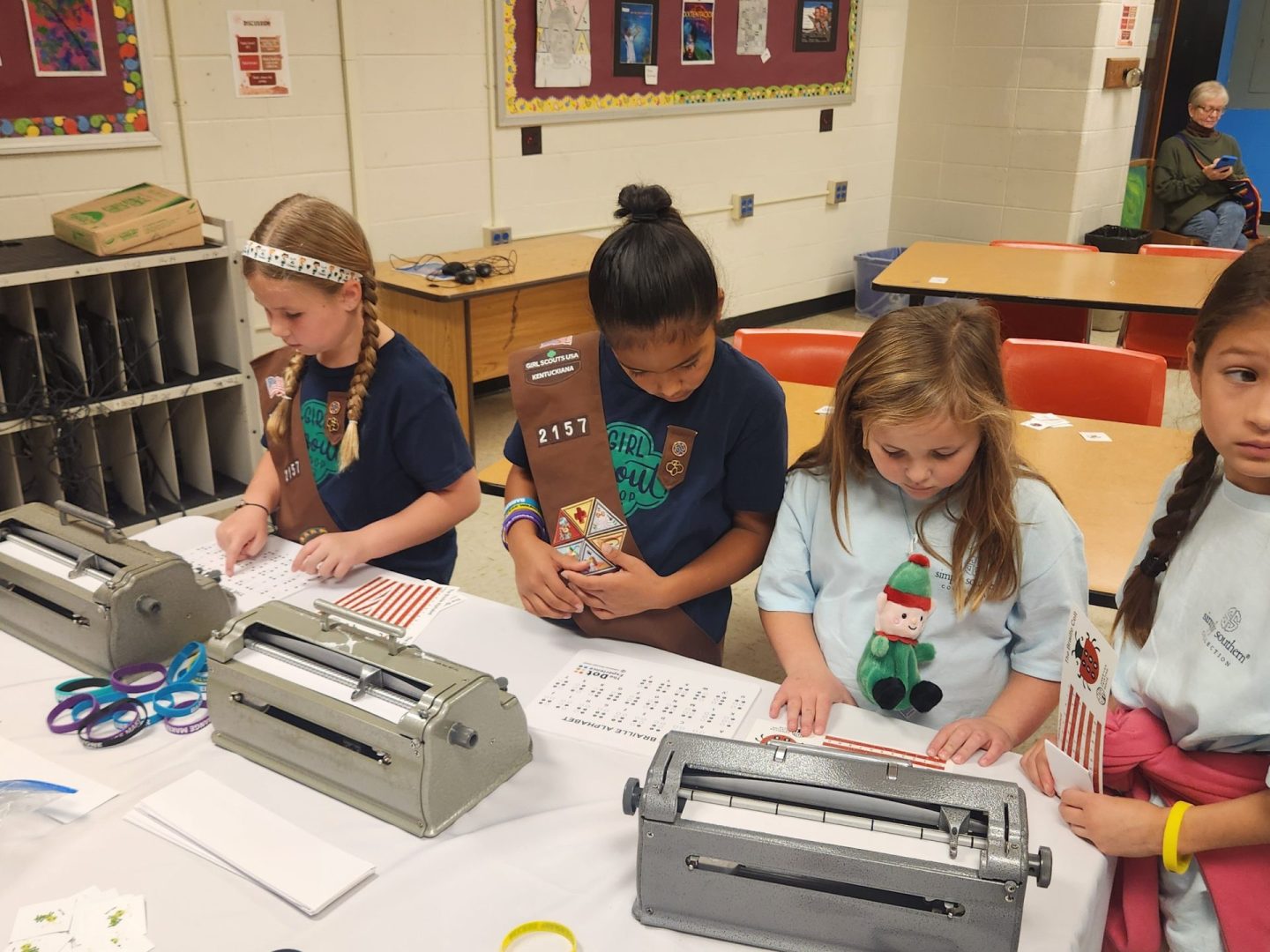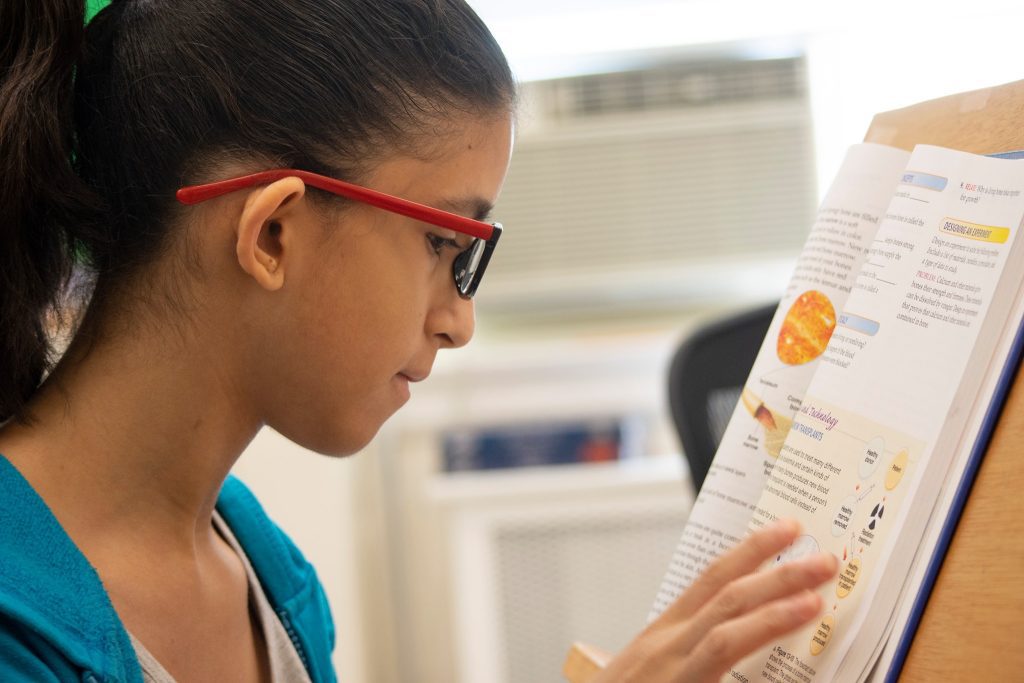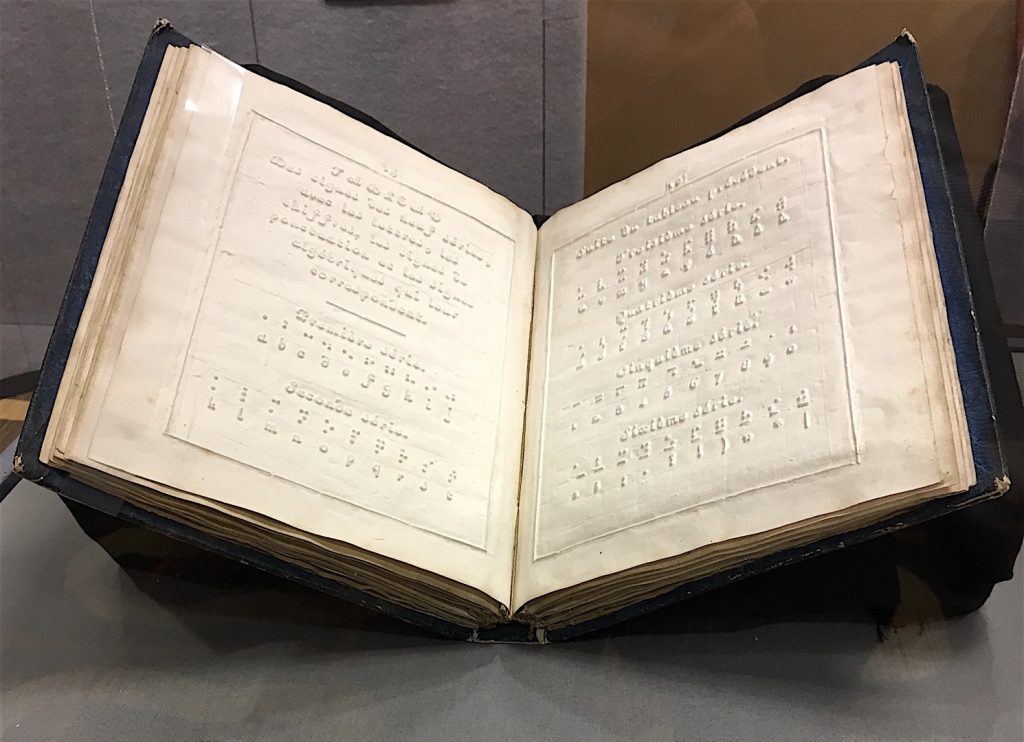Orders placed between March 27 – 31 will not ship until April 1 due to APH warehouse closure for inventory.
CloseLiteracy Through Touch: Introducing Braille with The Dot Experience Programs

The six dots in The Dot Experience logo represent the structure of the braille cell, an important code that makes literacy possible for those with low to no vision. Braille paved the way for many individuals, assisting them in their education and throughout their careers. One example is Dot Experience Cast Member, Judy Dixon, an expert in the field of braille literacy and internet accessibility. Judy worked for the National Library Service for the Blind within the Library of Congress for 43 years, served as Chair of the Braille Authority of North America, Secretary of the International Council on English Braille, and as President of ICEB. She has earned numerous accolades, most recently the Wings of Freedom Award from the American Printing House for the Blind in October 2024. This award recognizes individuals who have demonstrated exemplary leadership in the areas of education or rehabilitation of persons who are blind or low vision. Judy’s passion for braille literacy also knows no bounds as she has a collection of braille and tactile-writing devices from around the world.
As The Dot Experience works to change perspectives about blindness, we thought of Judy Dixon and the pivotal role braille plays in her work. We decided the first step to showcasing how individuals who are blind or low vision can do anything a person with typical vision can do is to demonstrate how braille aids in academic success. Thus, The Dot Experience team and volunteers have hosted a series of programs across the community with braille as their focus.
The most recent event was held at Noe Middle School for the Girl Scout Festival of the Arts on November 9, 2024. During each of the three hour-long sessions, the Girl Scouts learned about Louis Braille, who, at just 15 years old, invented the braille code to help children like him have a way of reading and writing letters, math symbols, and even music notes. They discovered how the code benefitted Helen Keller as she wrote letters and speeches, advocating for people who are blind and DeafBlind, the rights of women, and civil rights. After the presentation, the children were taught the braille alphabet and practiced decoding as well as making their own words using some muffin tins and multicolored tennis balls arranged in the shape of braille cells. They then moved onto a table with braillewriters to type their name and take it home to show to their families. If time allowed, the girls could also compose a message to themselves or others in the room. Staff who are braille readers checked everyone’s work for accuracy and helped correct any errors.
Jessica Minneci, The Dot Experience Inclusive Content and Programs Specialist commented, “The girls were fascinated by the braille code and embraced the challenge of brailling their names for the first time. Some even wanted to stay after the event concluded.”
Learn more about The Dot Experience, and read our blog about Judy Dixon.
Share this article.
Related articles

Louis and the AMP Database: Supporting Students and the Field
The Louis Database The concept of sharing information between braille-producing agencies dates back to the 1950s, when APH used a...

Blindness History Basics: The First Publication of the Braille Code
Louis Braille’s code lives on today as individuals who are blind and have low vision use his system to read...

New Partnership Creates Groundbreaking Product
American Printing House has partnered with General Electric (GE) Appliances in the creation of stickers to ensure accessible home appliances...
